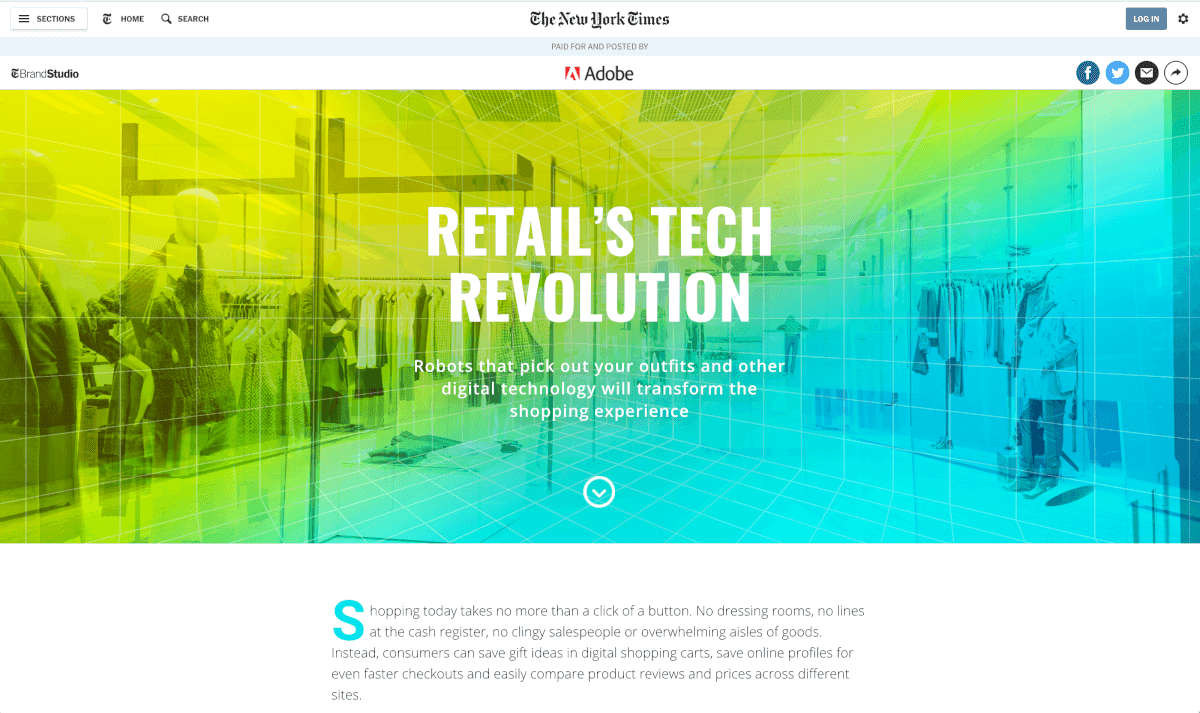Television Advertising: Do People Still Watch TV Commercials?
Advertising on television can cost thousands (and thousands), just for that typical 30 seconds of airtime during prime-time viewing. It is still thought of as the best way to reach millions of potential customers - after all, television is arguably the most powerful medium of all. With such a huge audience and the opportunity to fill the minds of viewers with subliminal messages that might affect their buying habits, it is little wonder that so many companies launch big advertising campaigns despite high costs. Television introduces viewers to products they were not even looking for, subtly creating brand familiarity. Advertising tries to answer our dreams by showing us how to 'make our lives easier or more enjoyable' by purchasing the marketed products.
Avoiding Television Advertisements
Images of happy families (household products) and illusions of freedom (new cars; credit cars) are just two examples of the angles used in television commercials. On-screen advertising portrays powerful messages, subtly encased in thirty seconds of light entertainment. But, of course, it is only worth it if viewers actually watch the commercials that breeze across their screens. At one time, adverts were watched and remembered by most people. I can still recall many of the ditties that became embedded in my mind as a youngster: 'Have a break, have a KitKat'; 'A Mars a day helps you work, rest and play'; 'Thank you very much just for being my missus' (Cadbury's Roses) and the Vitalite butter advert (see above) are just a handful that I can quickly drum up more than twenty years later. I can't however, instantly think of more than a couple of examples from the present day.
What does this mean? Does it mean that people are less focussed on television adverts today, either because they are not watching at all or because they are not paying attention? In this article, I have outlined some reasons why commercial ad breaks might no longer be reaching their intended audience. I have also included a poll at the bottom, in which I am hoping readers will record their own behaviour regarding television advertisements. By collecting enough data, I am hoping to create a more accurate picture of the impact of television marketing today.
Bisto Advert - Marketed Using the Happy Family Motto
Less Patience
Our technology-filled age has certainly created changes in the behaviour of many viewers. Today, people are used to having everything at their fingertips at the touch of a button. But our advances have, in part, changed the way many of us are. As an audience, we are much less patient. Decades ago, we watched our television shows at the time they were broadcast - there was no chance to record programmes for later viewing. If we were out, we missed it. And when the adverts came on (every fifteen minutes or so unless we were watching the BBC), we patiently waited. Perhaps we went into the kitchen to make a cuppa or to fetch some snacks. But that was about it.
During the 1980s, many of us started acquiring video recorders. These were a revelation, because for the first time we could record shows that we would otherwise miss or that we might like to watch again. Video recorders also gave us the chance to skip through television commercials. However, how many of us actually did that? I do remember fast-forwarding through the ads, but with clunky tapes to contend with it wasn't quite such an easy task as it is today. Also, the very fact that tapes had to be purchased and stored meant that we did not record all our favourite shows 'just in case' we might not be there to watch it, but dutifully set the machine up when we were definitely heading out. The majority of people still watched their chosen shows at the time of broadcast if they were planning to be at home. Is that still true today? I think not. I know that I watch almost none of my programmes at the time they are aired, preferring to record every single one using my Tivo Box to watch at my leisure (usually when the kids have gone to bed). Leisure time has evolved so that our viewing can now be tailor-made. The opportunity to record up to three shows simultaneously (or if you forget, watching On Demand) means that none of us are controlled by schedules. But because so many of us are not watching our shows at the scheduled time, it is much easier for us to forward through the ads.
Our modern, impatient natures mean that a large percentage of us no longer want to sit patiently through four minutes of ad breaks when, in a matter of seconds, we can move on to the next part of the show. After all, we have become a society who complains when our Broadband is too slow and our web page takes too long to load. We don't wait anymore. We are less tolerant of interruptions because we have the technology to side-step them. This means, therefore, that the commercials heavily invested in by companies are not reaching anywhere near their potential audience. How can they be?
Even when I am watching a rare show at the time of airing, I avoid the adverts. Commercial breaks are, for me, the perfect time to have a peek at Facebook, run to the loo, check some work or reply to a text message. Is this true for most people? Is advert-avoidance for non-recorded shows more common than it used to be? Is it true that our hyperactive minds are more likely to search for other activities to fill the time taken up by commercial breaks?
Age Range and Advertising
In our house, my children watch the most adverts. It seems to me, the younger the child the more the intended message gets through. My four year old often runs through to me yelling, 'Mummy, I have just seen xyz on TV and I want to get it.' Usually, it is a toy that has grabbed his attention, appearing far more exciting on-screen than it does on a shelf in the shop. He believes the hype; he is not yet mature enough to see through it. Interestingly, it is not always something aimed at his own age that pulls him in - I have been told several times that I should buy a certain washing powder or dishwasher tablet because ''it is the best'. Incidentally, he has the most exposure to the adverts, since we rarely pre-record his shows and he just watches whatever is on.
My twelve year old, on the other hand, is sometimes swayed by adverts - but is just as likely to look at a YouTube video on his Ipod Touch while he waits for the ads to be over. The effect of the adverts is less noticeable on him - he watches only some of the time, yet it is still enough to create the 'I want' syndrome in his brain. Electronic devices such as mobile/cell phones usually get his attention - as long as he hasn't plugged himself into his Ipod headphones, breaking all communication with the television. My twelve year old, however, is a lot like me. He has all his favourite shows set to record automatically, so he is far more likely to skip the ads altogether. He is not patient. He does not like interruptions. He has grown up with the convenience of technology and he uses it to suit him.
The oldest among us are usually the last to jump on the bandwagon of new technology. Therefore, it is probably fair to say that the eldest generations are the least likely to be purposefully avoiding ad breaks. With less technology and a more patient demeanor, it is perhaps more likely that older people pay more attention to adverts, simply because they don't bother doing anything else during that few minutes of commercial airtime.
Summary
Adverts are everywhere; someone is always trying to persuade us to part with our hard-earned money. Where we once dutifully watched them, picking up the little tunes and phrases that went with them, more of us now avoid them as much as we can. At best, a lot of us listen with half an ear, only looking up if something really catches our interest. We are less patient. Whatever the medium (TV, online, etc.) many of us click away or fast-forward so that we are not inconvenienced. Technology has invaded our homes like never before, but it has also given us more control to arrange our down-time to suit ourselves. At a time when many businesses are struggling, it is certainly worth asking the question: do people still watch TV commercials? Please spare a moment to answer the poll below.








